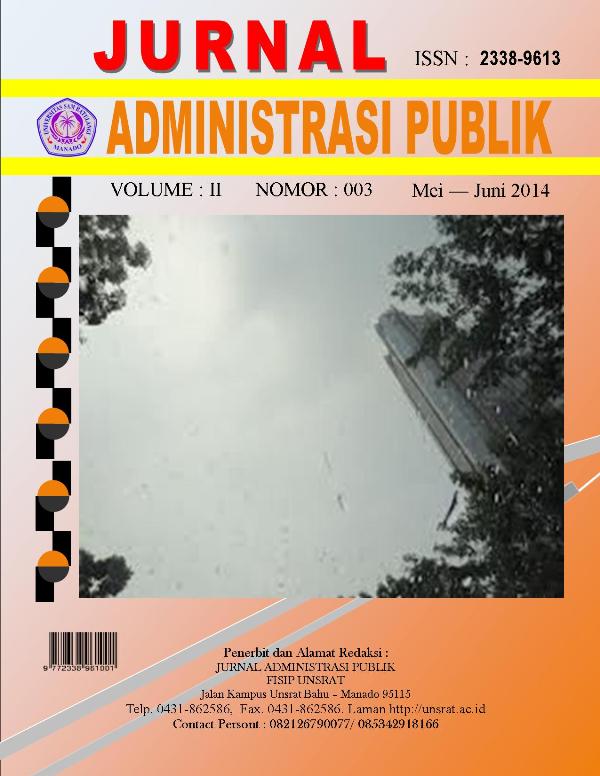Dampak Otonomi Khusus Terhadap Kesejahteraan Masyarakat Asli Papua Di Distrik Mimika Timur Kabupaten Mimika Provinsi Papua
Abstract
The point of the special autonomy for Papua region which are intended to improve the standard of living in terms of improving the welfare and progress of the people of Papua, the freedom to empower wealth, accelerating economic development and respect for the rights - basic rights of the people of Papua, but in reality the impact of the implementation of the policy for ± 13 years has not been fully felt by the indigenous people of Papua.
This study used quantitative methods with sampling done by 5 (five) village 1 (one) villages in the region of East Mimika district of Papua Mimika Provini. The study sample of 100 respondents assign less capable of being taken at random, from 5 villages and 1 sub-district with a number of different respondents Wania village where the village as much as 9 respondents, 15 respondents mware village, village Tipuka were 21, 16 Kaugapu village people, village Hiripau 6 and hometown Pomako 33 people. Making the sample size is determined by the number of residents in each village / urban village. Collecting data on the use of simple linear regression statistical analysis and product moment correlation.
Based on the analysis of the data showed: (1) the regression coefficient of the special autonomy impact on the welfare of indigenous Papuans is 0.689 scale. (2) the correlation coefficient of the special autonomy for the welfare of the indigenous people of Papua is 0.345 and the coefficient of determination is 0.119 or 11.9%.
Based on these results it can be deduced that the impact of the special autonomy policy on the welfare of indigenous Papuans enough impact on the indigenous Papuans. Based on the conclusions suggest that the performance of the special autonomy be improved in order to give effect to the indigenous people of Papua is not a good standard of living.
Keywords: Special Autonomy, Papuans welfare








